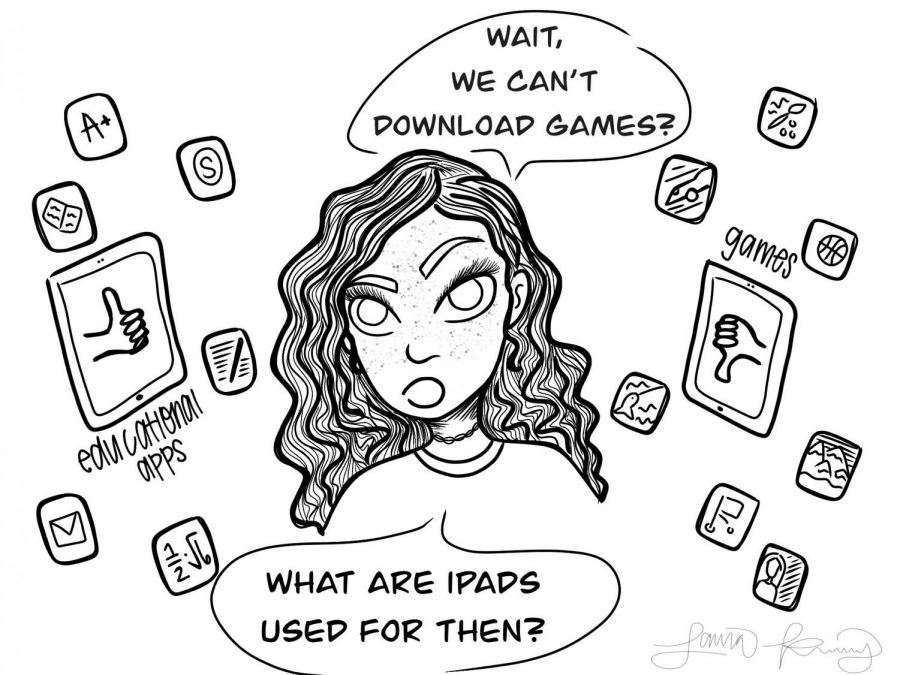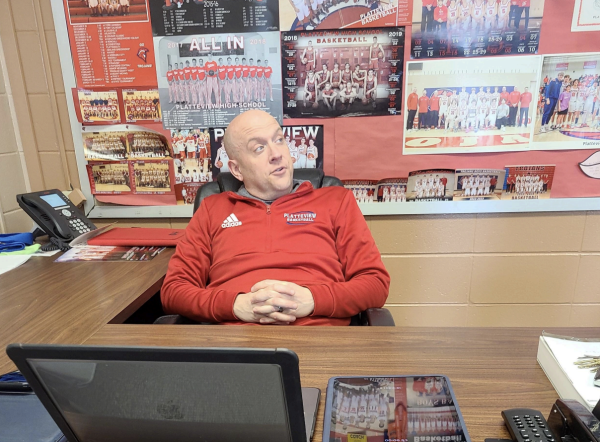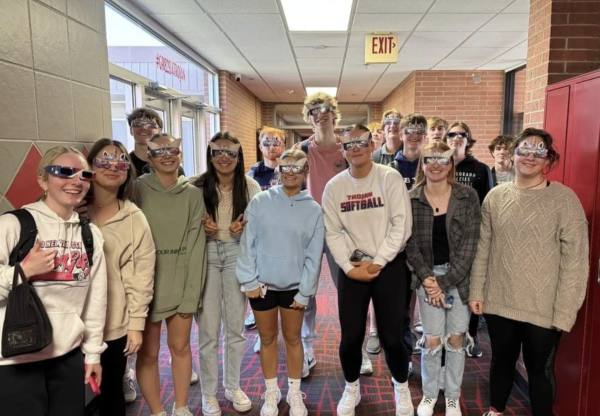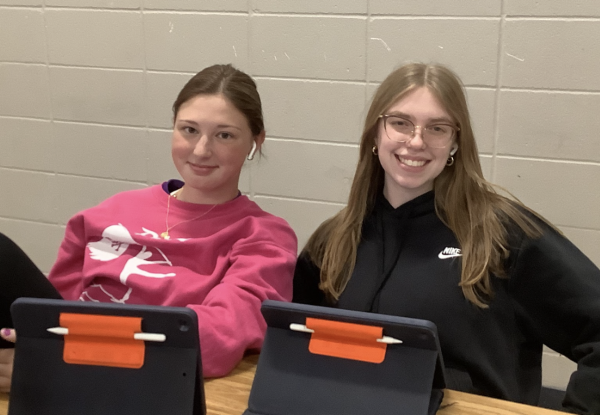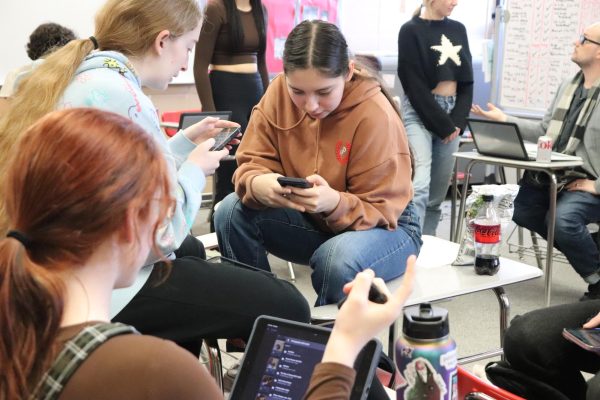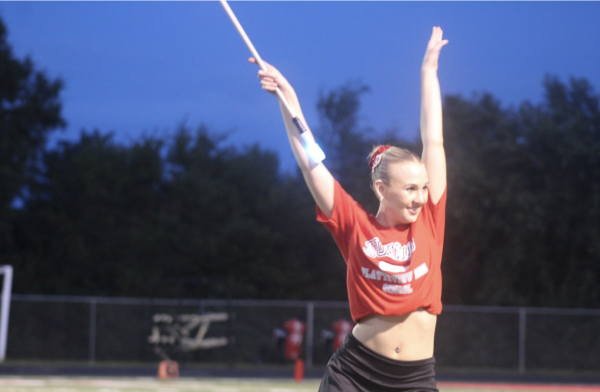Free from Distractions: Why New iPad Policies are Beneficial
This comic, illustrated by Laura Kinney, shows what a lot of students at PHS may be thinking due to the changes in the iPad policies.
August 22, 2019
This school year’s iPad policies are meant to emphasize education and student learning. In previous years, the iPads were used by students for school and entertainment purposes. More often than not, students would play games during class when they were supposed to be listening to teachers or doing homework. When I saw this, I couldn’t help but think about how misused the technology had become. Apple Classroom took care of this, but it only worked if students kept their Bluetooth on.
This year’s new policies prevent gaming and any misuse of iPads by restricting which apps can be downloaded. This seems like the perfect solution because students are more likely to actually complete schoolwork and focus on the task at hand. Without the distraction of games, students are not as tempted to waste their time at school or distract themselves from class. Time we spend at school is meant to be used for learning and bettering ourselves academically.
Matt Adkins explained that iPads: “Why don’t they [students] go back to textbooks if that’s what they [iPads] are really for.” I think sometimes we forget that we used to have textbooks, and the fact that we complain about not having games on our iPads displays our ignorance to this. Frankly, I am of the opinion that we should’ve restricted games from the start, and we’re now on the right path to better learning thanks to the new policies.
Providing an Administrator’s perspective, Mr. McLaughlin said, “Personally, I love the change because the percent of kids in classrooms that I observed last year using the iPad for gaming or watching a video during class was unacceptable.”
If we spend half of our day playing games at school, we might as well be at home just sitting on our couches.
Mr. McLaughlin’s full response:
“My understanding of the situation is that the nature of their use has evolved. When introduced, the iPads were meant to be a personal device for students to use on things such as games and music. With the explosion of smart phones the extra use of the iPads seemed unnecessary. Your phone can now do anything an iPad can. Therefore, the decision was made to adjust the iPads so they are strictly an educational tool with the understanding that the other functions can be provided by personal smart phones. Personally, I love the change because the percent of kids in classrooms that I observed last year using the iPad for gaming or watching a video during class was unacceptable. Anything we can do to remove distractions from the learning environment is a positive step in my opinion. As hard as it is for some kids to believe we got by for centuries in this country with no iPads or smart phones!”
Change can be difficult, especially when it comes to something we have all become so used to. But change can also be good. And it looks like the new iPad policy is putting students first, student learning first – not games – and freeing us from distractions.
